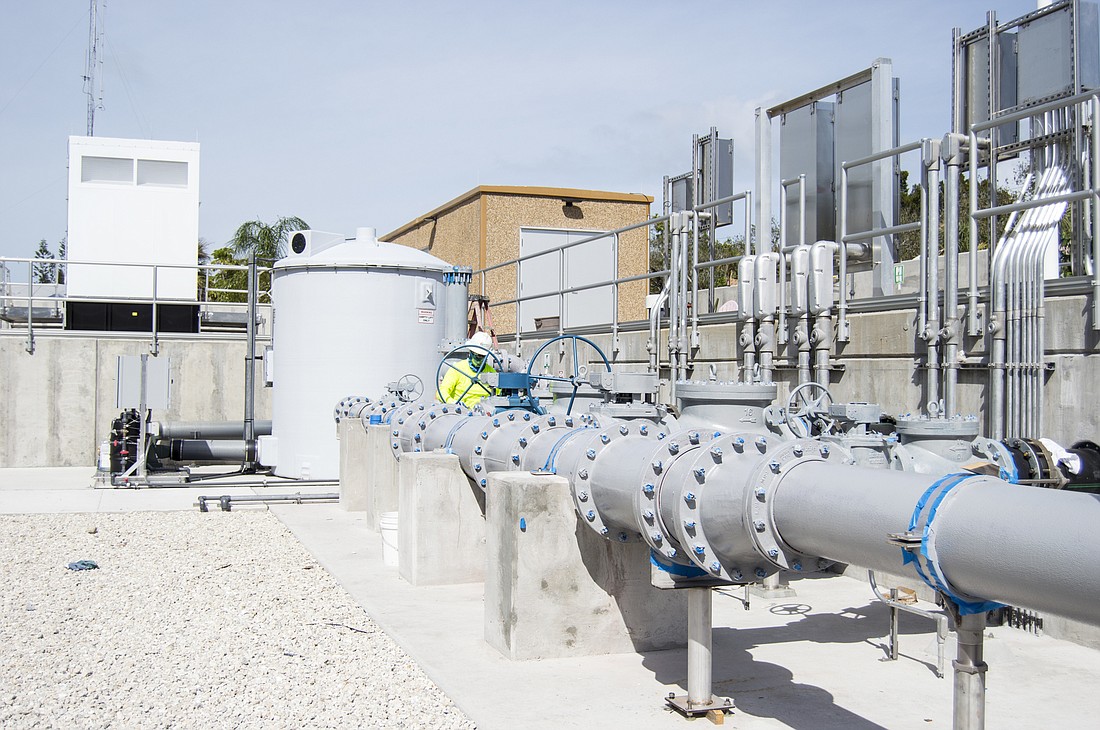- November 23, 2024
-
-
Loading

Loading

Residents of the Siesta Isles neighborhood have waterfront homes on a quiet part of the Key, away from the busier Siesta Key Village or the public beach.
Residents such as Lorie Tiernay and her husband bought their homes with the idea of spending much of their time outside.
They never imagined the years-long struggle they’d have to endure as the county made plans to decommission the nearby wastewater treatment facility.
Tiernay bought her home in November 2015 and expected the plant to stop functioning by Christmas. But it’s only now, in February, that the plant is almost ready to stop functioning and wastewater will go through a pump station to a mainland treatment plant.
“Everyone is going to have a huge sigh of relief,” Tiernay said of her neighborhood.
The residents have endured noise from the plant and from construction, and a range of odors.
The county acquired the plant in 2006 from a private utilities provider. In 2010, the Florida Department of Environmental Protection ordered the county to shut it down by 2013. But a series of extensions pushed the deadline December 2017. Hurricane Irma prompted more months of delay.
Now the project is nearing completion. This week, the pump station and its generators were tested and employees were trained on its operation. Sarasota County Utilities Manager Dave Cash said after this week, use of the treatment facility will decrease and use of the pump station will gradually increase. By the end of February, all of the wastewater will flow through the pump station.
“We’re being very cautious of the transition because it’s important that we don’t impact plant operations,” Cash said. “If we quickly decrease the flow or cause big increases in the flow, it can cause plant upset.”
The new station and the associated piping cost about $6 million, and will serve all Siesta Key residents who live in unincorporated Sarasota County.
Although residents were frustrated in 2016, when odors were permeating the neighborhood, partially treated water was recently released into the canal and the timeline was extended once again, they say the county responded to their concerns.
A chemical solution to control the odors was put in place and was extended to the new, enclosed pump station. Tiernay said it has been less of a problem recently, although at times it’s still an issue.
In addition to the pump itself and the backup generators, the county-owned land near Glebe Park will be outfitted with holding tanks, which will hold wastewater in the event of heavy rainfall or a “max-day event” that overwhelms the pumps. Previously, the treatment facility dumped partially treated water in the canal in such an event.
Bob Luckner, who has been keeping track of the project for the Siesta Key Association, said he was pleased to hear about the holding tanks.
“I think it’s a good solution that they came up with,” he said. “In the interim of say the past year, I don’t think they’ve had any overflow situations because of too much rainfall.”
Once the tanks are put in, the county will demolish the treatment facility, leaving most of the property vacant — but the demolition hasn’t been scheduled.
Residents would like to see the facility turned into something nice, like a dog park or a non-motorized boat ramp, or even a parking lot.
“Our biggest fear is that they’re just going to suddenly say, ‘Guess what, it’s now this,’” Tiernay said. “We just want to make sure they keep us informed and we have actual input in what is going to go there.”
A spokesperson for the county said a use for the land has not been determined.
Although the future of the land is uncertain, Tiernay is excited to see the project in its last phases.
“It’s a really good thing for Siesta Key for it to be gone.”
Correction: An earlier version of this story gave an incorrect timeline for the demolition of the wastewater treatment facility.